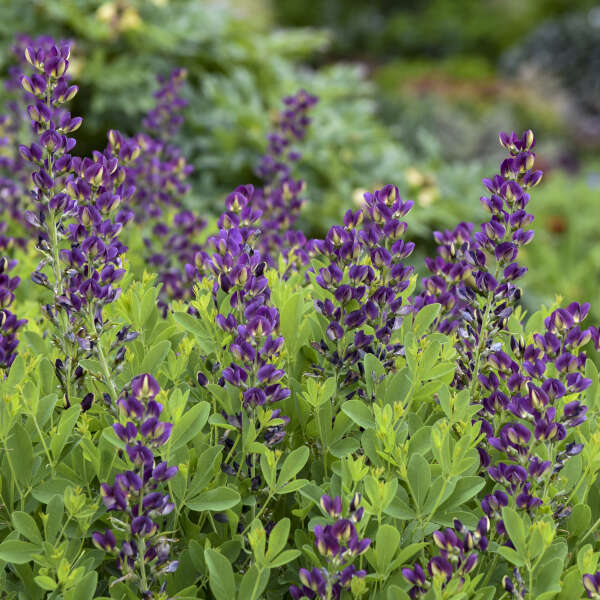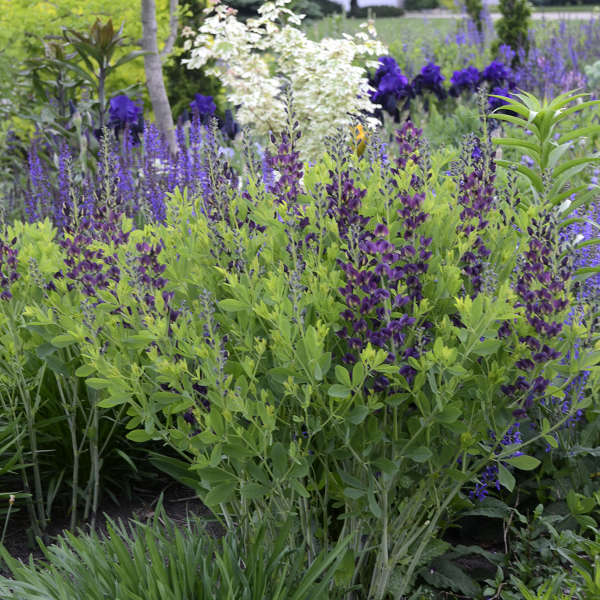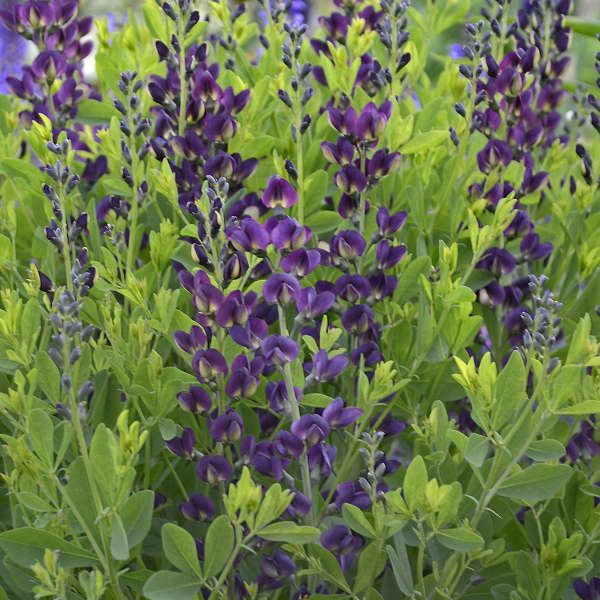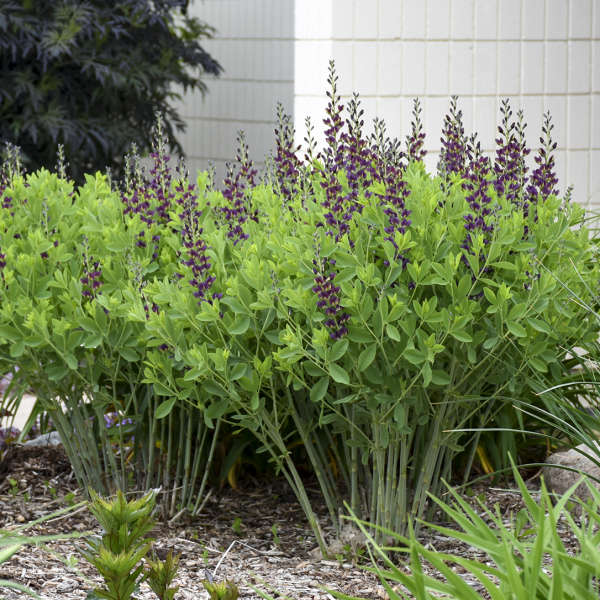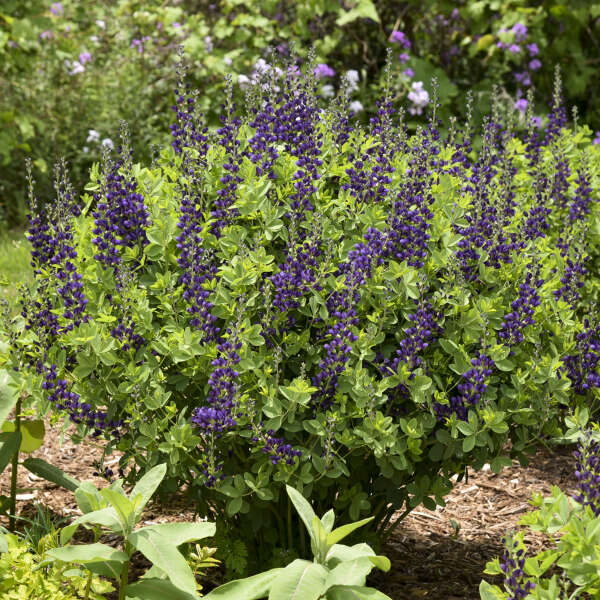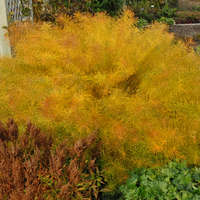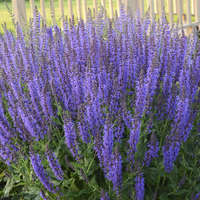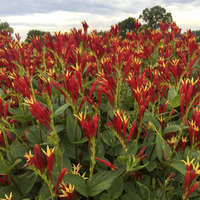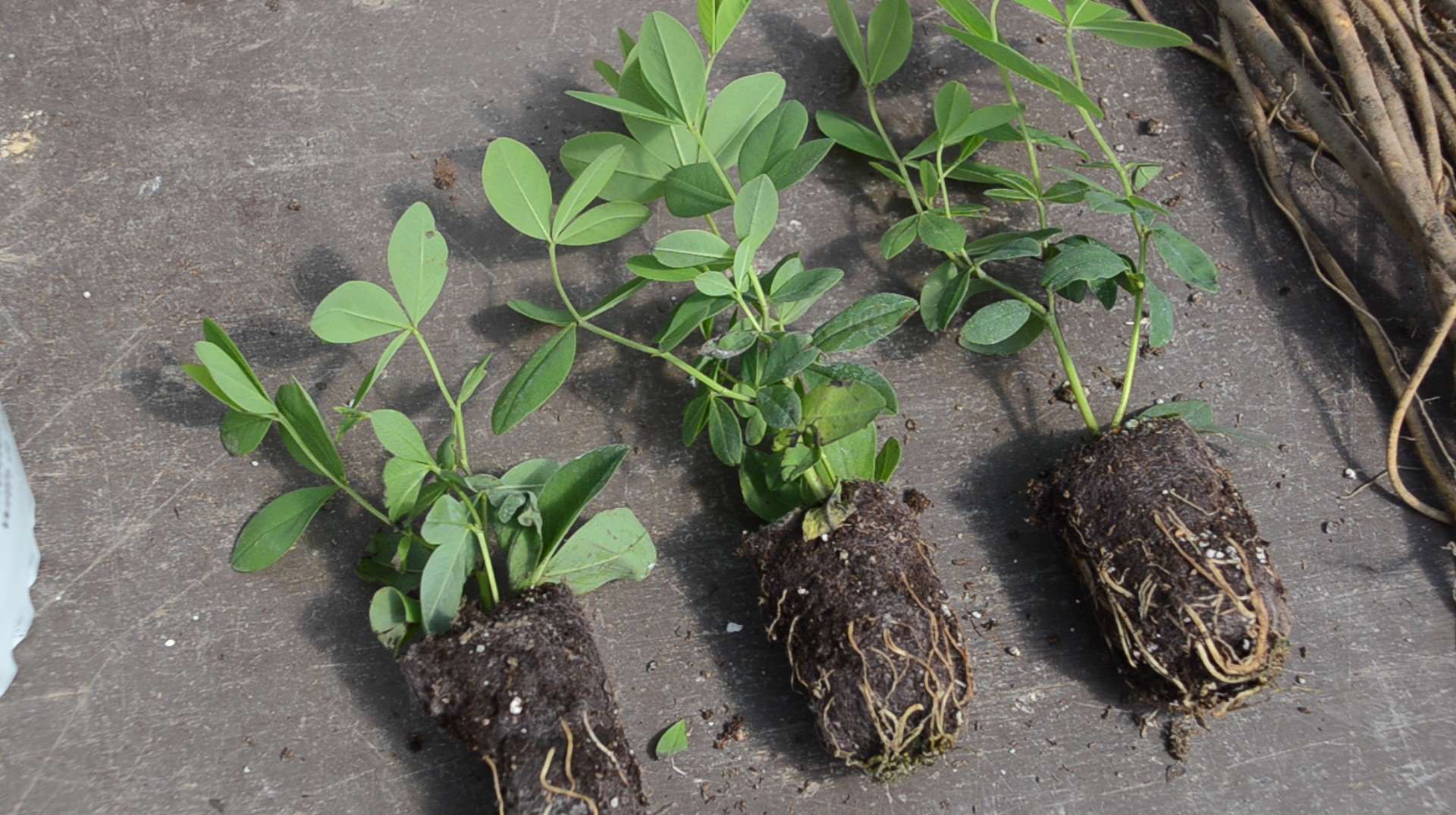Baptisia 'Grape Taffy' PP26587

Common Name: False Indigo
Do you love the native genus of Baptisia, but find that you don’t have room on your shelf for the tall, lanky cultivars? Try ‘Grape Taffy’, a new Baptisia developed by Hans Hansen at Walters Gardens, Inc., one of the most compact Baptisia to date. Coming in at under 2½ feet tall, this naturally compact plant stays an ideal size in the retail pot. Spikes of deep reddish-purple flowers appear in early summer, reminiscent of grapes. Each flower is accented by a buff yellow keel. The reddish-purple flowers are a color break for Baptisia, a departure from the typical deep blue flowers of the genus. The green foliage looks attractive even when the flowers are not in bloom. This extremely long-lived perennial could be used instead of a shrub in landscape settings, with minimal care required to thrive year after year.
Baptisia is easy to grow and will thrive with little maintenance. There are many potential applications in the landscape including meadow plantings, as a backdrop in borders, or as a specimen.
